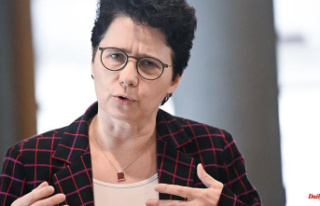As a result of the throttling of gas deliveries from Russia, the dependency is very noticeable. The Eastern Commissioner chooses clear words in Dessau. The energy agencies in East Germany are networking.
Dessau-Roßlau (dpa/sa) - From the point of view of the Federal Government Commissioner for Eastern Europe, Carsten Schneider, the dependence on Russian gas is a "big failure". "We were too naive, too careless as Germans. I say that very self-critically to myself," said Schneider on Thursday at the transnational energy forum of the energy agencies of the states of Saxony-Anhalt, Saxony, Thuringia and other partners in Dessau-Roßlau. "We have made ourselves dependent on a single energy supplier." There are warning signs for everything, but there is no alarm signal for the question of how dependent one is geostrategically, militarily and industrially on a single country and its aggression. Self-sufficiency within Europe is needed, Schneider said.
For Saxony-Anhalt's Energy Minister Armin Willingmann, the success of the energy transition is increasingly becoming a central issue of public and social security. "The effects of the Russian attack on Ukraine make us painfully aware that security and affordability of energy cannot be taken for granted," said the SPD politician.
After the drastic reduction in gas supplies from Russia in mid-June, the federal government declared the alarm level in the gas emergency plan. Since the start of the Russian war of aggression in Ukraine at the end of February, Europe's supply of gas from Russia has been considered endangered. Energy prices have already risen sharply.
Willingmann called for working "with full force" to become less dependent on fossil and nuclear imports. According to the minister, this could be achieved through the massive expansion of renewable energies and the "exploitation of the potential for green hydrogen".
In order to provide more cross-state support for the ramp-up of hydrogen and existing structures, the state energy agencies of Mecklenburg-Western Pomerania, Saxony-Anhalt and Thuringia signed a cooperation agreement during the event. Other states are to follow. "The way must be the same, that we do it together in East Germany and not separately for each country," said Schneider.












